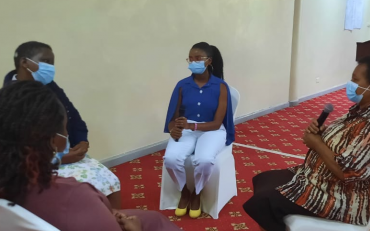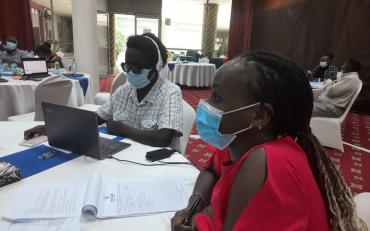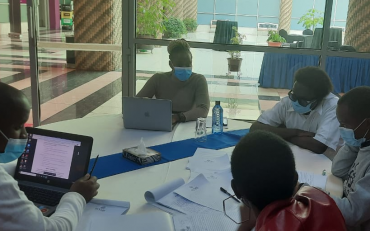Technical workshop on strengthening the network of persons with psychosocial disabilities in Kenya: Positioning the next generation of self-advocates
From the 21-23 June 2021, the World Network of Users and Survivors of Psychiatry and the Pan African Network of Persons with Psychosocial Disabilities (PANPPD) with the support of the International Disability Alliance (IDA) are holding a technical workshop for representatives from 15 organizations of persons with psychosocial disabilities.
This workshop is part of a series of technical workshops supported by IDA for organizations of persons with psychosocial disabilities. It is meant to deepen the understanding on the Convention on the Rights of Persons with Disabilities (CRPD) and the Sustainable Development Goals (SDGs) to further strengthen the advocacies of self-advocates with psychosocial disabilities on human rights based approaches to disability.

As a result, these workshops have seen the formation of a network of more than 15 organizations which is key in supporting to build a stronger movement of self-advocates. These self-advocates continue to play a key role around discussions on legal reforms and advocacy towards their inclusion in society. There is also a strong focus on inclusive budget advocacy and how advocating for the same would support initiatives aimed at building back better after the pandemic and how these are inclusive and responsive to the needs of persons with psychosocial disabilities.
“People with psychosocial disabilities must be at the forefront of reframing the debate from just solely being about mental health to their full and effective participation and inclusion on an equal basis with basis,” said Mr. Michael Njenga, the Executive Director at Users and Survivors of Psychiatry in Kenya (USPK) who is leading the training, adding that at the core of this must be restoring voice, power and choice as a pathway to independent living and being included in the community.
Mr. Njenga noted that these conversations must be spearheaded by persons with psychosocial disabilities through their representative organizations in line with General Comment 7 of the CRPD. “This will only be made possible when there is deliberate and intentional investment in strengthening the capacity of self-advocates through their representative organization on human rights-based approaches and disability inclusive development.”
Other facilitators in the workshop include Mr. Macharia Njoroge who is an IDA-WNUSP Fellow, Brian Emmanuel a self-advocate at USPK, with support from Ms. Elizabeth Ombati a self-advocate and the African Disability Forum Engagement Officer in Kenya.
Indeed, for the inclusion of persons with psychosocial disabilities in our society to be meaningful, they must be viewed as having equal rights like all other citizens. “We must challenge the more dominant narrative of relying on the bio-medical model of addressing distress and embrace the paradigm shift of viewing people with psychosocial disabilities as subjects before the law with equal rights and responsibilities,” emphasized Mr. Njenga.

On the first day of the workshop, participants had diverse discussions including what human rights based approaches to disability mean; a recap on the CRPD general principles as well as plenary discussions on CRPD article 27 on work and employment. It was especially important to have discussions on work and employment as Users and Survivors of Psychiatry in Kenya (USPK), a member of PANPPD and leading the workshop is an implementing Organization of Persons with Disabilities (OPD) in the UK funded program Inclusion Works whose major focus is on inclusive employment for persons with disabilities. USPK has been instrumental in supporting the engagement of persons with psychosocial disabilities in this program and it was critical that discussions are held more so on practical ideas to share with potential employers on what it takes to support people with disabilities in the open labor market.
The three-day workshop is being held at a time that OPDs continue to call upon governments and other key stakeholders to ensure that in building back better after the pandemic, there must be meaningful consultations with persons with disabilities so as to ensure that inequalities that have existed before and during the pandemic, are addressed. It is important to ensure that such consultations are inclusive of underrepresented groups of persons with disabilities such as those with psychosocial disabilities.

